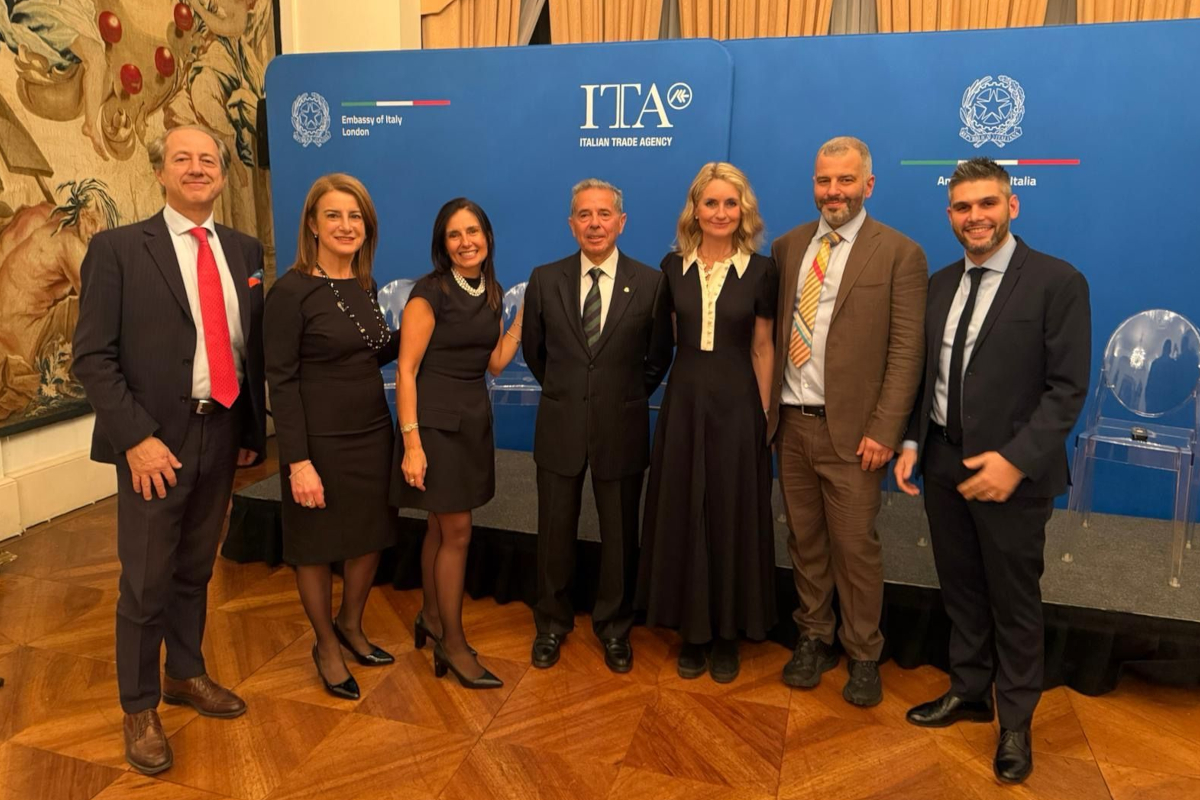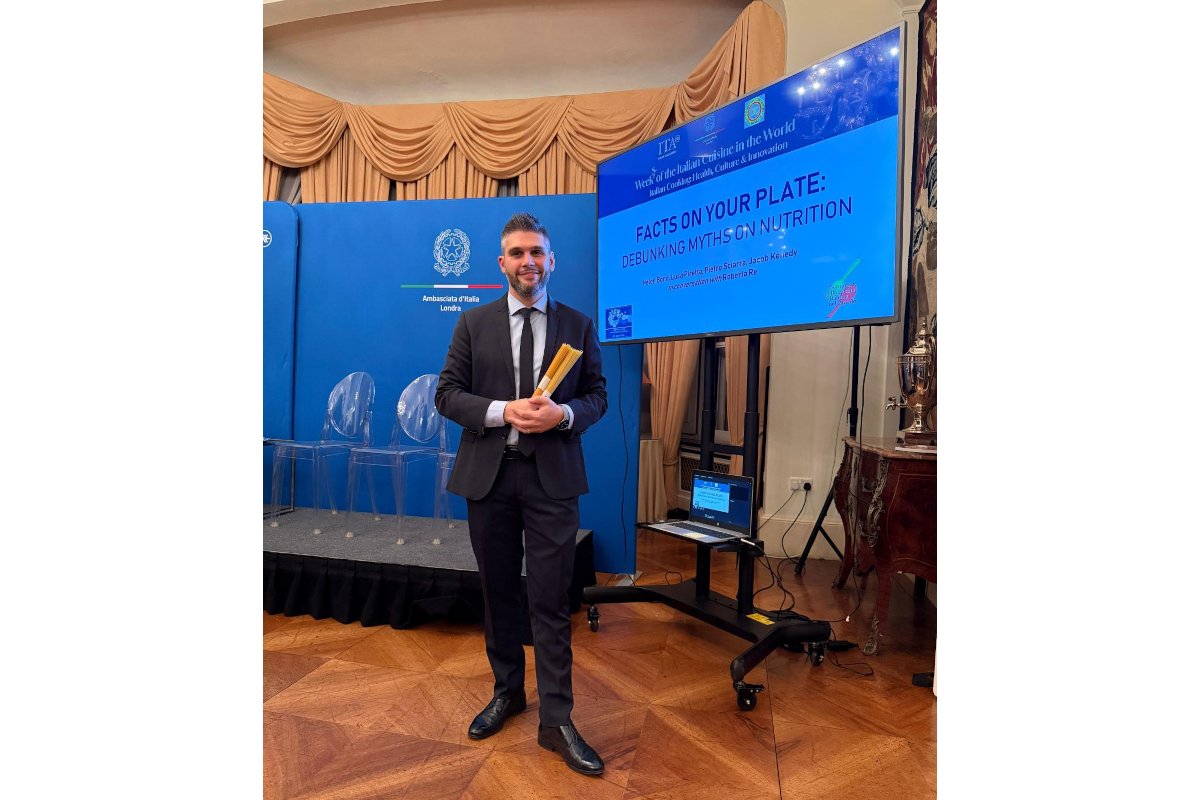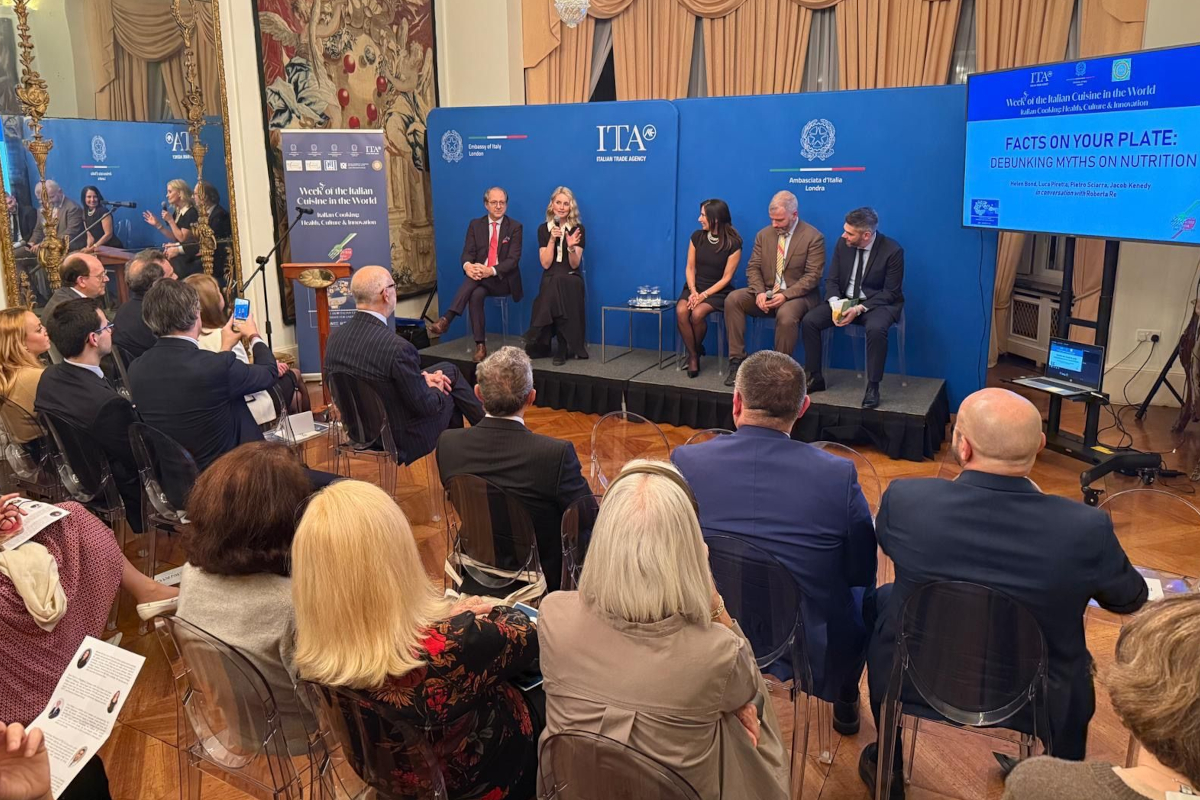
At the Embassy of Italy in London, the event “Facts on your plate: debunking myths on nutrition” brought together nutrition specialists and representatives of the Italian and British agri-food sectors. Organized as part of the World Week of Italian cuisine by the Embassy and the Italian Ministry of Foreign Affairs, the discussion aimed to dismantle persistent food-related myths—from “detox” diets to the demonization of carbohydrates, and widespread confusion surrounding sugars and fats. The shared message from the panel was clear: online misinformation is rampant, and a more critical, evidence-based approach to food is urgently needed.
Opening the session, Ambassador Inigo Lambertini emphasized the enduring value of Italy’s nutritional heritage. “The Mediterranean diet is a legacy built over time,” he noted, “and it remains a globally recognized model of balance.”

Medical professionals and nutritionists echoed this perspective, stressing that no individual food should be labeled as inherently “good” or “bad.” What matters, they argued, is the overall dietary pattern and lifestyle. This holistic approach, they said, aligns closely with long-standing Italian food culture.
Within this context, Pietro Sciarra, Head of Technology at De Cecco, highlighted the company’s longstanding commitment to quality. “Our goal is to guarantee products that are reliable and of superior quality,” Sciarra stated, “the result of methods that honor the history and integrity of our brand.”

De Cecco’s participation symbolized more than corporate presence—it represented a cornerstone of Italian culinary identity. The brand’s premium pasta, the speakers underscored, continues to stand as a consistent ambassador of Italy’s gastronomic tradition worldwide. Closing the event, chef Jacob Kennedy reminded the audience of a core principle at the heart of Italian cuisine. “Eating well must remain a pleasure,” he said—a simple idea, yet one that continues to guide Italy’s approach to food.

With clarity, scientific insight, and a nod to culinary heritage, the London discussion reaffirmed that informed eating is not about restriction or trends, but about balance, culture, and enjoyment.
